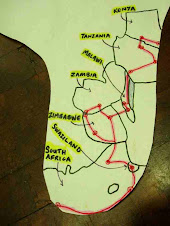Cross-Pollination Project experimental session #3
In this session we discussed the challenges (and solutions!) of cross-pollination, and then explored what it means to cross-pollinate as an individual versus as a representative of a group. Who am I and why am I here? (check ins) * treating group as amorphous blob instead of connecting to individuals Challenge: two people sharing a dorm room with a common value but different tastes in food, music, fashion, religion Solution: found agreement in disagreement Challenge: two charismatic leaders who can’t work together Solution: found support staff of both who could communicate. Leaders are invested in their posture and couldn’t change identity Solution: live in each other’s shoes for 30 days Challenge: group didn’t feel listened to so conflict happened. Group already defined its terms and the other person spoke before listening Solution: recognize the power to assert oneself and use authority to say that the terms need to be redefined to include everyone--- or, before the meeting, be part of setting the agenda! BUILD TRUST FIRST Challenge: five groups with different values needing to work on a challenging situation Solution: They needed to be heard individually before they met as a group—needed to vent. Solution: with research we learned that the conflict was artificial—it was a perceived difference but not a real one Challenge: want to bring a different, potentially threatening information to a group Solution: build from what is known and safe and then bring in a new idea. Bring it back to what is known and accepted Solution: APPRECIATIVE INQUIRY CHECK OUTS:
Click here for more!!!
* activism through networks versus being in a solid position
* book: alexander galloway: the exploit
* my friend told me i'm a cross-pollinator... i hang out with a lot of different groups and talk about a lot of different things
* involved with arts collective, inner city garden, work in mexico, circus--in portland now and asking what's happening and what could go better?
* food not bombs has three or four groups here who don't communicate
* community based barter system--trade not capital
* i've been doing CP for decades--not on the street but from the inside in a corporation-- saw the need to work in teams, cooperate, understand each other's languages is fundamental... things not on the surface are very important--communication
* as an academic and psychologist i asked what is the nature of multidisciplinary and the difference between agreement and understanding
* grew up in a conservative family, became a hippy, and find myself wanting to connect and share with conservatives... as a construction worked i can connect
* i want to connect people with a need to people with a skill or resource. support the flow of energy
* i connect with people in a neutral way--not sell anything but help people open up to each other
* i am here representing CNRG and portland peak oil and a community art project--a cross pollination project about systems flow
* i find myself in the spaces between groups, connecting them
* i'm a facilitator, mediator, power dynamics between individuals and groups
* i want to help different groups find points of linkage
* i work with consensus based groups and look at the underlying power structure and policy--working towards a new kind of social organization--democracy!Challenges in cross-pollination (group b’storm)
* internalized class values
* want to partner, similar values, but real differences in other ways, like in decision making structures and methods
* connecting grassroots with professional groups--very different mechanisms even if similar goals
* developing trust--not feeling understood or feeling alienated
* when an individual is not clear what their role is
* group believing that they have the same goal or same enemy but not
* this work not being supported or appreciated by groups oor people
* a group that's come together can be thrown off by a troublemaker-- and then how everyone deals with it
* do nothings who cause trouble to cover laziness
* fear of change--the challenge of holding onto the old way
* race, gender, class, sexual orientation, privilege of any sort, religion.... how large scale oppressions affect everyone differently
* when you have a bond with fighting a common enemy and then the enemy goes away
* when you accept other as self
* information overload leading to lockdown
* overcomplexification
* burn out! overwhelm with not getting there fast enough-- then the links you hold are lost
* not using technology and networks
* action oriented versus philosophical
* historical pain (organizational or personal) -- old stuff preventing current connections
* language
* TIME
* different frames of reality--different perceptions of the same thing
* missionaries and narrow mindedness
* EGO
* money--scarcity mentality
* lack of public space to meet--lack of common ground
* different cultures--food, music, gathering style, etc.
Wisdom from discussing challenging cross-pollination situations (debrief after small group discussions)
Cross pollination as: Individual ßà Group (full group brainstorm/discussion)


No comments:
Post a Comment